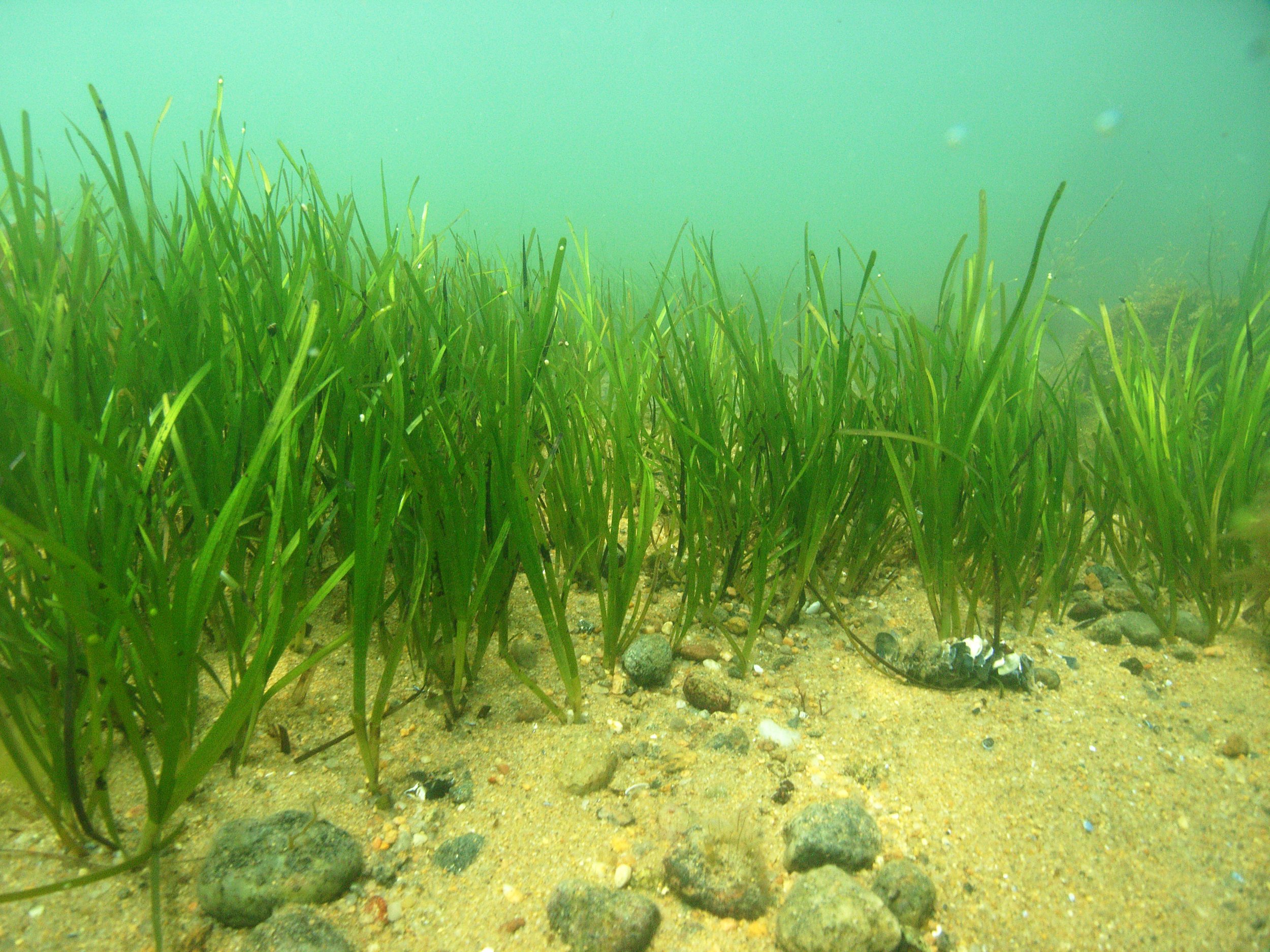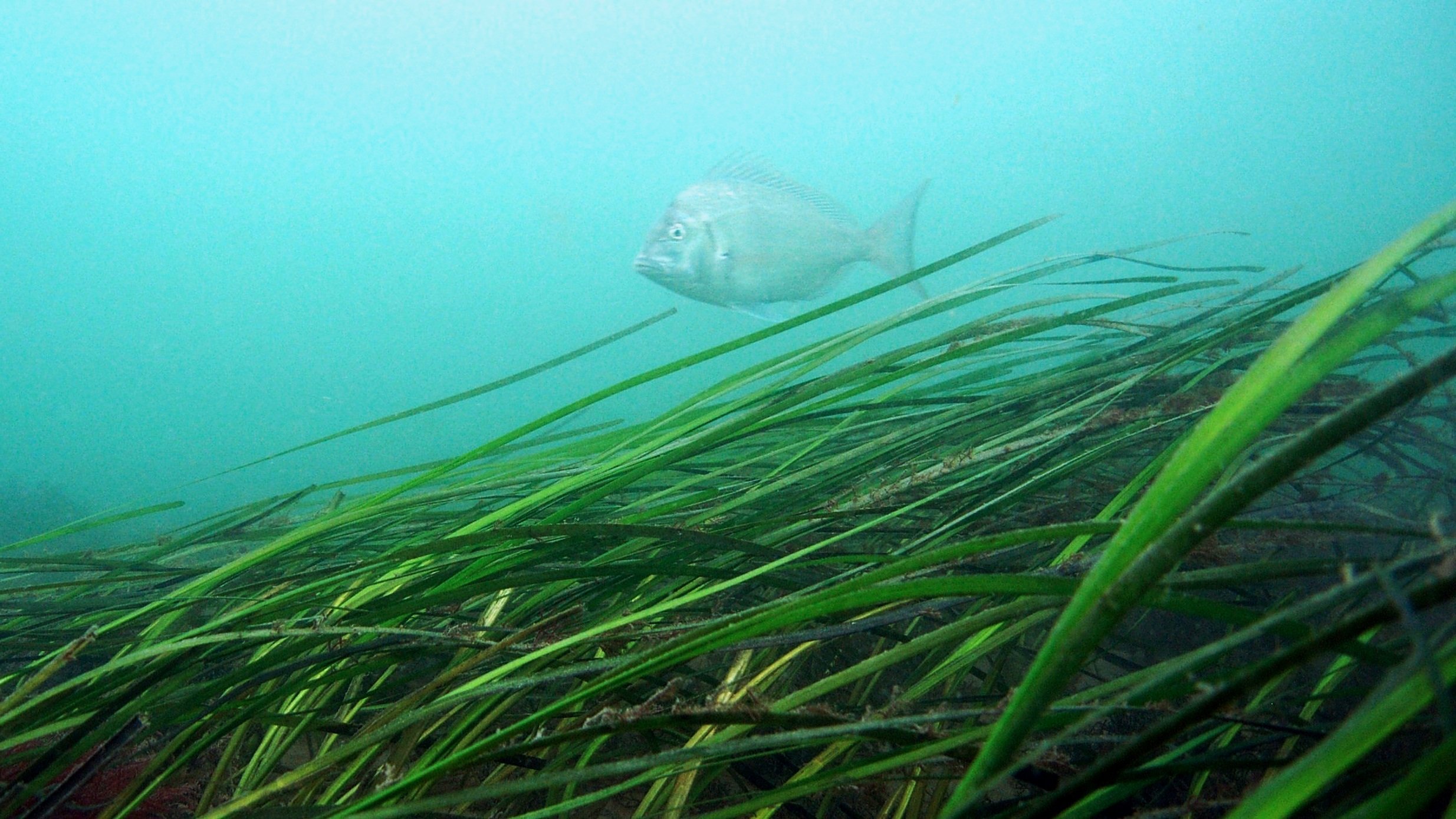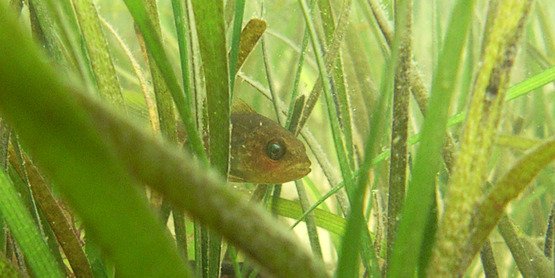
Blue Carbon
Mitigating Climate Change by Restoring Coastal Marine Habitats
Funded by and in partnership with the South Shore Estuary Reserve Program
Project Background
Funded by and in partnership with the South Shore Estuary Reserve Program, CCE Marine Program is continuing to restore eelgrass meadows and other marine habitats along the south shore of Long Island. Coastal habitats help sequester carbon and mitigate climate change. This grant has enabled CCE Marine to develop a unique Blue Carbon Curriculum, to engage local students and the general public in habitat restoration and spread awareness of climate change.
South Shore Estuary Reserve Boundary, LEARN MORE
To gain a deeper understanding of the connections between Blue Carbon, climate change, and marine habitat restoration, read below or engage in one of our interactive digital lessons.

What is Blue Carbon?
Blue Carbon refers to the carbon dioxide captured and stored by oceans and coastal ecosystems, such as seagrass meadows and salt marshes. These Blue Carbon Ecosystems not only provide essential habitat for marine species and prevent coastal erosion, they also play a crucial role in reducing atmospheric carbon dioxide, thereby mitigating climate change.
Climate Change + Carbon
Carbon is a naturally occurring element forming the basis of all living things. Carbon is also abundant in the form of carbon dioxide gas (CO2). Since the Industrial Revolution, the burning of fossil fuels, like coal and oil, has increased the amount of carbon dioxide in our atmosphere.
Carbon dioxide serves as a “greenhouse gas,” acting as a blanket that traps heat near Earth’s surface. Although natural, too much CO2 enhances the Greenhouse Effect, trapping excess heat and causing global warming.
This impact is multiplied by habitat destruction as the photosynthetic plants that remove CO are destroyed. Climate change causes melting ice caps, sea-level rise, droughts, fires, hurricanes, floods, spread of disease, and crop failures, threatening wildlife and humans.
Carbon dioxide levels and global temperature over the past 2022 years. Image: Prof. Ed Hawkins, National Centre for Atmospheric Science.
Blue Carbon Habitats Mitigate Climate Change
Coastal habitats, like eelgrass meadows, salt marshes, and dune grasses, are considered to be excellent carbon sinks - they absorb and store a lot of carbon, for a long time. Marine plants grow quickly. The faster plants photosynthesize, the faster carbon is captured from the atmosphere. Blue carbon habitats absorb carbon, on average, 10 times faster than a tropical rainforest!
Long Island is located in a region along North America’s East Coast that sequesters up to 11 million tonnes of carbon per year. That’s the equivalent to the CO2 produced by 8,975,388 gas powered vehicles driven for 1 year!
Carbon sequestration, minimizes the Greenhouse Effect, and slows the effects of climate change.
Wetland soils are anaerobic, lacking oxygen, which causes plants to decompose slowly. This preserves their carbon and stores it for 100s or 1000s of years.
Seagrass habitats worldwide capture carbon up to 35 times faster than tropical rainforests!
Dune grass accumulates sand, building islands and allowing even more species of plants to grow.
Restoring Blue Carbon Habitats with CCE Marine Program
Back to the Bays, an initiative of Cornell Cooperative Extension Marine Program, is dedicated to the mission of restoring blue carbon habitats. Our scientists and volunteers work year round to restore and protect coastal and marine ecosystems that capture carbon and support biodiversity. In order to bring back populations of eelgrass and enhance existing meadows, CCE’s experts are working to plant thousands of eelgrass shoots at carefully selected restoration sites.
Get Involved!
Become a Back to the Bays Steward and attend our public Stewardship Sessions!

Blue Carbon Curriculum For Educators
With funding from the South Shore Estuary Reserve Program, CCE Marine’s Back to the Bays Initiative has developed a Blue Carbon Curriculum to engage students and the public in habitat restoration, and bring awareness to climate change. A limited number of programs are available for FREE to schools and libraries within the SSER region.
To request a program, contact: Ella Gatfield, eg649@cornell.edu








